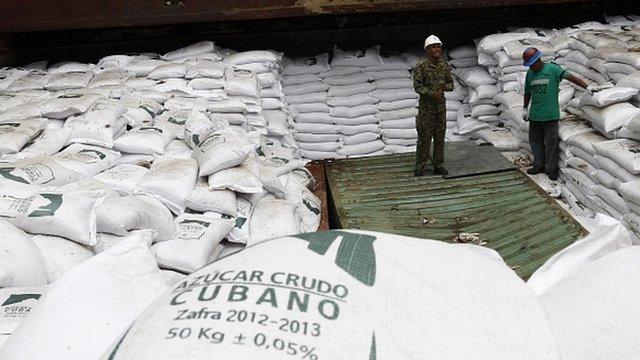Singapore firm fined over North Korea arms shipment
- Published
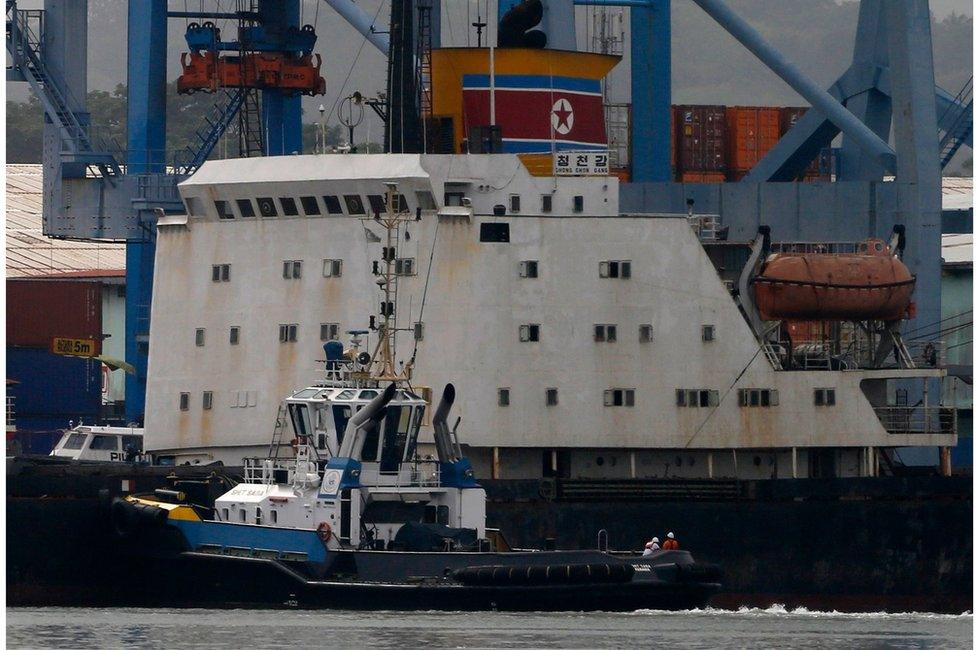
The container ship used for the shipment, is, like its cargo, somewhat dated
A Singapore firm has been fined 180,000 Singapore dollars ($125,700; £87,900) for facilitating a shipment of arms from Cuba to North Korea.
A court found in December last year the Chinpo Shipping Company was in breach of the UN sanctions on North Korea.
The company paid a Panamanian shipping agent $72,000 (£50,000) for the passage of North Korean ship the Chong Chon Gang through the Panama Canal.
The arms shipment was hidden under more than 10,000 tonnes of sugar.
The Chong Chon Gang was stopped while navigating the Panama Canal, by officials who suspected it was being used to smuggle drugs.
Cuba said it had shipped the weaponry to North Korea for repair. It did not explain why it was hidden under a cargo of sugar.
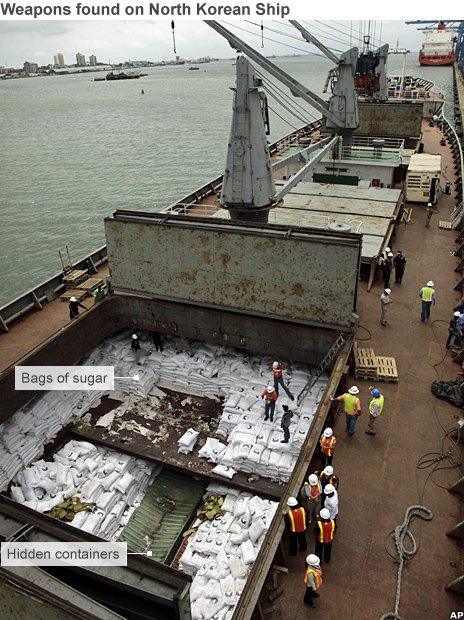
Thousands of tonnes of sugar was piled on top of containers of arms
Chinpo was also fined S$100,000 for operating a remittance business without a license, for performing hundreds of remittances, worth tens of millions of dollars, on behalf of North Korean entities.
During the trial, the prosecution said the company often did not provide relevant names or documents when carrying out transactions, in a bid to obscure the counterparties involved.
The arms included disassembled radar systems, missiles, MiG fighter jets and engines, many of which dated from the Soviet era - something the shipping company attempted to use in its defence, arguing they were "obsolete".
The defence also claimed the aircraft were intended for training, not battlefield use, although training weapons are also covered by the sanctions
Chinpo director Tan Cheng Hoe, also cited what he said were his well-known connections to North Korea, stretching back decades, as evidence that he and his company were not trying to hide their dealings with Pyongyang, dubbed "proliferation finance", external by experts.
He claimed that omitting such details was a common way to speed up money transfer times.
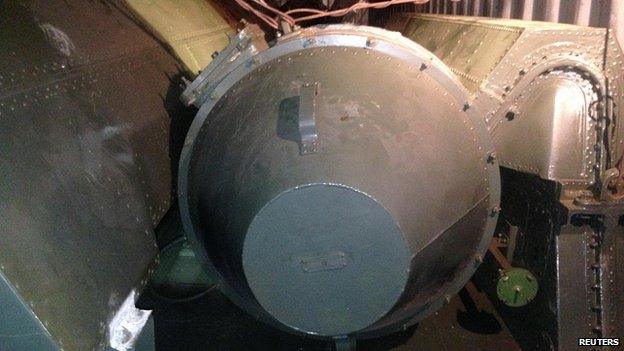
The ship's hold was found to contain live munitions
Both Singapore-based Chinpo Shipping and Pyongyang-based Ocean Maritime Management (OMM), which operated the seized ship, have been named by the UN as entities involved in shipping North Korean arms.
Under United Nations sanctions, the Democratic People's Republic of Korea (DPRK), as it is formally known, is banned from weapons exports and the import of all but small arms.
The Panama incident was the largest seizure of arms going to or from North Korea since the UN began its current sanctions on the country in 2006, said the Singapore District Court judge.
- Published9 December 2015
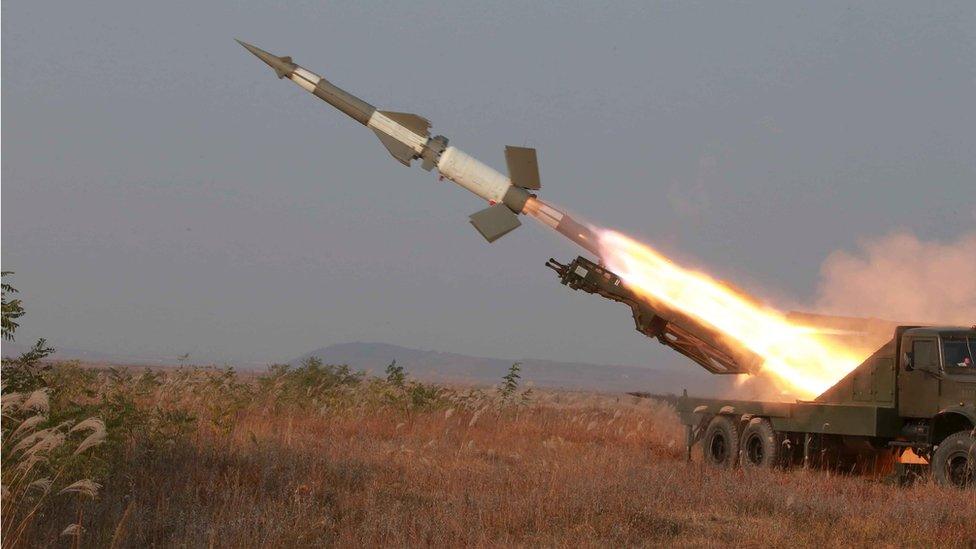
- Published24 July 2015
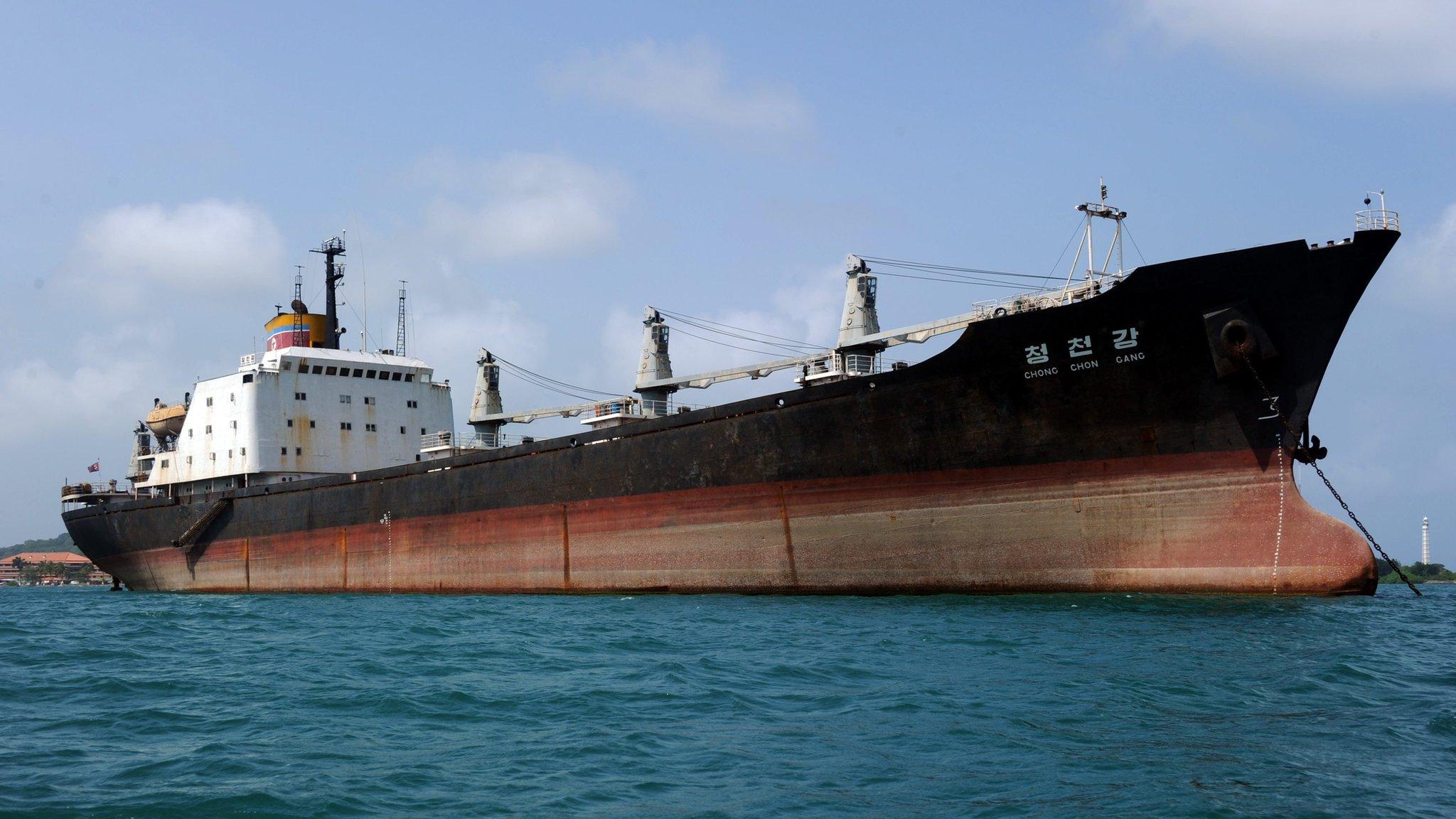
- Published29 July 2014
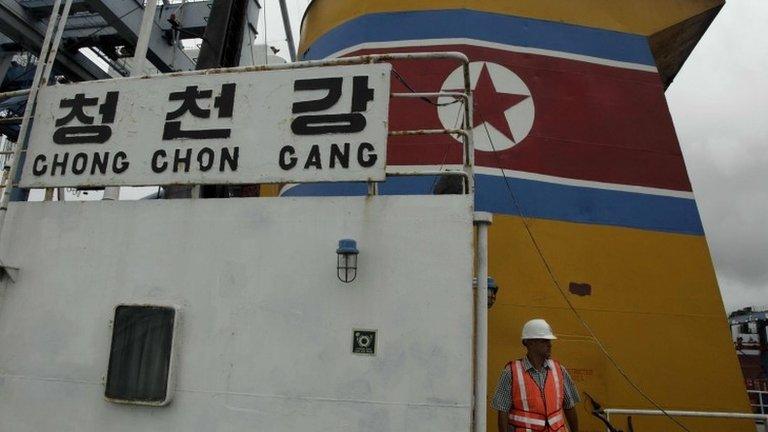
- Published10 June 2014
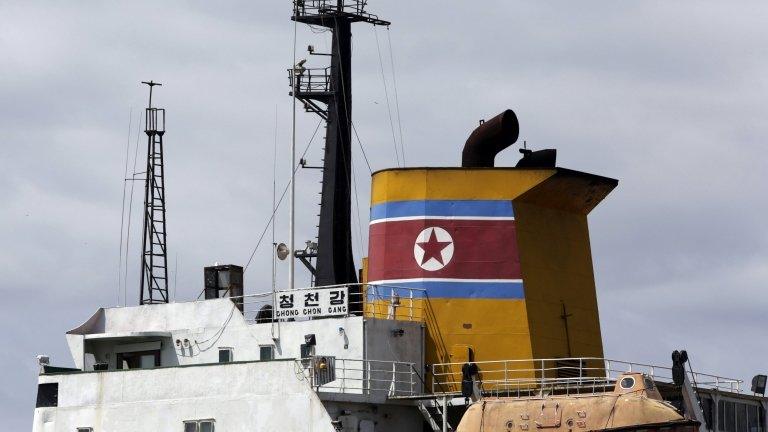
- Published15 February 2014

- Published16 July 2013
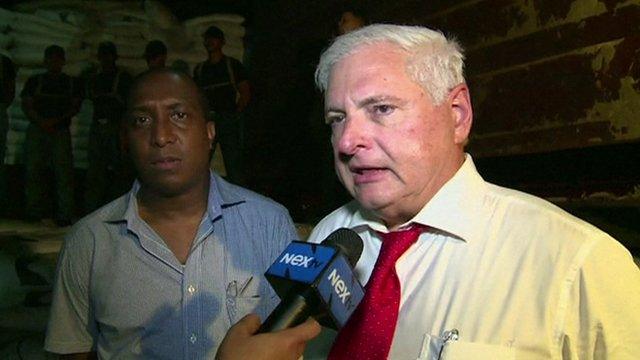
- Published17 July 2013
